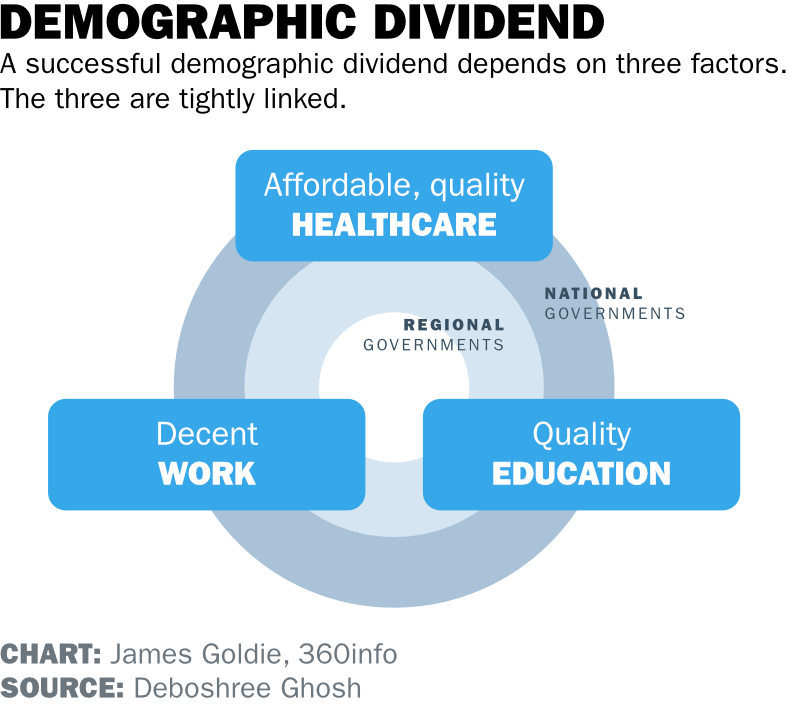By Deboshree Ghosh
KUALA LUMPUR, Nov 23 — If nations want to reap the benefit of what is called the demographic dividend — when economic growth is tied to the change in the age structure of the population — three things are essential: quality education, affordable health care, and decent work opportunities.
The demographic dividend contributed substantially to the rapid growth of east Asian economies from the 1960s to 1990s, a.k.a. the East Asian Miracle.
In Thailand in 1970, World Bank data showed the 15-64 age group accounted for 52 percent of its total population. In 30 years, this rose to 70 per cent.
Right now, countries such as India are going through a demographic dividend process which is expected to transform the nation into one of the world’s main growth powerhouses.
This growth is expected off the back of the digital revolution — assuming nations can harness the energy of a younger workforce.
While there is evidence of the positive relationship between the demographic dividend and economic growth, government policies do not always nurture these factors which can lead to a bottleneck that hinders progress.
According to the World Bank, nations can be arranged by their fertility rates and working-age populations. There are 37 countries which are categorised as pre-dividend, 62 as early dividend, 37 as post dividend, and 51 as late dividend.
But don’t expect economic growth to happen just because the population is primed.
Research suggests that a population with healthy women and children, a skilled workforce and plentiful job opportunities can reap the benefits. There also needs to be policies in place to support these.
Research indicates that the increase in per capita productivity due to the sharp rise in the working-age population during the East Asian miracle was only possible because the region’s economic, social and political policies and institutions were aligned.

Decent work, quality education and affordable, quality healthcare are tightly linked factors in the demographic dividend.
These three dimensions (above) are usually governed by different government agencies but they are deeply integrated.
Affordable and quality healthcare has two parts: the provision of services to all, along with access to modern health facilities.
This is only possible if the government ensures more scholarships to produce more quality doctors and that subsidised treatments are available.
Proper health education — including sex education — for schoolchildren should be part of this strategy.
Nutrition is crucial as well. Studies suggest a low nutritional intake directly affects the cognitive abilities of children and eventually their capacity to obtain quality skills and education.
The importance of including rural populations in these initiatives should not be underestimated.
In India, the anganwadi system in rural villages creates hubs for contraceptive-use counselling and nutrition education to ensure better rural childcare. These systems, however, need a revamp with sensitive health issues being discussed with adolescents at school.
The International Labor Organization’s (ILO) decent work framework lists generating employment opportunities, acceptable labour standards, social protection and social dialogues between employers and workers, as essential for progress.
Creating more jobs will require a detailed analysis of skill gaps which can then be taught by education institutes.
Given the strong links between these three dimensions, government agencies need to have frequent discussions to act on feedback from one another. Regional (state) governments need to be part of the solution.
Reaping a demographic dividend requires careful and long-term planning.
It includes not only increased investment in education and healthcare but also strengthening government department cooperation to ensure the opportunities of this ‘golden period’ are not squandered.
Deboshree Ghosh is a research consultant and adjunct lecturer at the University of Malaya, Kuala Lumpur, Malaysia.
Article courtesy of 360info.








